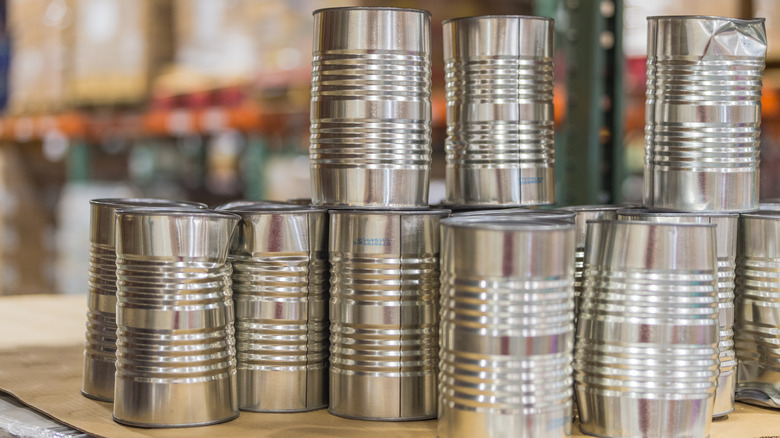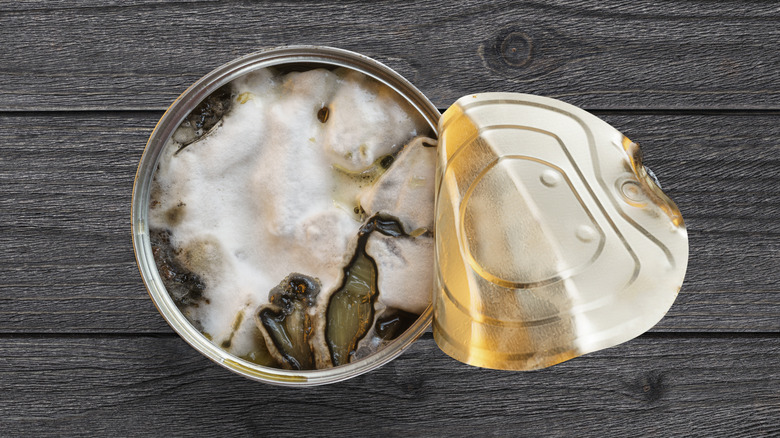Is It Safe To Eat Dented Canned Food?
Many canned foods are just as good as fresh, but are dented cans still safe to eat from? The simple answer is yes, but it depends. Cans with small dents are usually safe if they are still intact and sealed, and the rims are unaffected. However, things get murkier when cans have larger dents deep enough to fit your finger in. Deep dents and dents with pointed edges are typically considered unsafe, as there's a higher possibility the can's seal has been breached. These dented canned foods have no place in your pantry, so it's safest just to toss them.
Dented cans can be dangerous because the bacteria Clostridium botulinum thrives in low-oxygen environments like the insides of cans. As this bacteria grows, it produces a dangerous neurotoxin. When consumed, even in microscopic amounts, this toxin causes the disease botulism, leading to severe illness and death. In commercial canning, C. botulinum spores are destroyed using high-temperature treatments, but when cans are compromised, spores can re-enter them and multiply, creating the deadly toxin.
Dents can also allow spoilage bacteria like Brochothrix thermosphacta, Carnobacterium, Lactobacillus, and Streptococcus to enter cans. These bacteria cause odors, discoloration, and gas production. When cans are infiltrated by these bacteria, the food inside cannot be saved and should be tossed out.
How to tell if your canned food is dangerous
When inspecting a can for dents, there are a few things to check. One is the seam and whether or not the dent affects it. A can could have a fairly significant dent, but it should be fine as long as it doesn't have sharp edges or break the seal. You should also pay attention to where a dent is. For instance, a small dent in the middle of a can might be fine, but one located near the top or bottom rim can compromise the seal.
Now, if you have canned food that's been recently dented because of a pantry storage mistake, it can still be good if you use it promptly. That said, if the dent is significant and you're unsure when it happened, the safest call is to bin it. Additionally, if a can is bulging, leaky, or rusted, dispose of it immediately. You can also check canned food for foul odors, discoloration, or spurting liquid after opening it.
The same signs of spoilage apply to home-canned goods, which account for 90% of all foodborne botulism cases in America (via the University of Minnesota Extension). Whether you're canning yourself or getting cans from someone else, always make sure proper canning methods were followed. As a general rule of thumb, home-canned food should only be kept for a year at most. However, if a container is cracked or leaking, or its contents look and smell bad, never taste or consume the food. When in doubt, throw it out!

